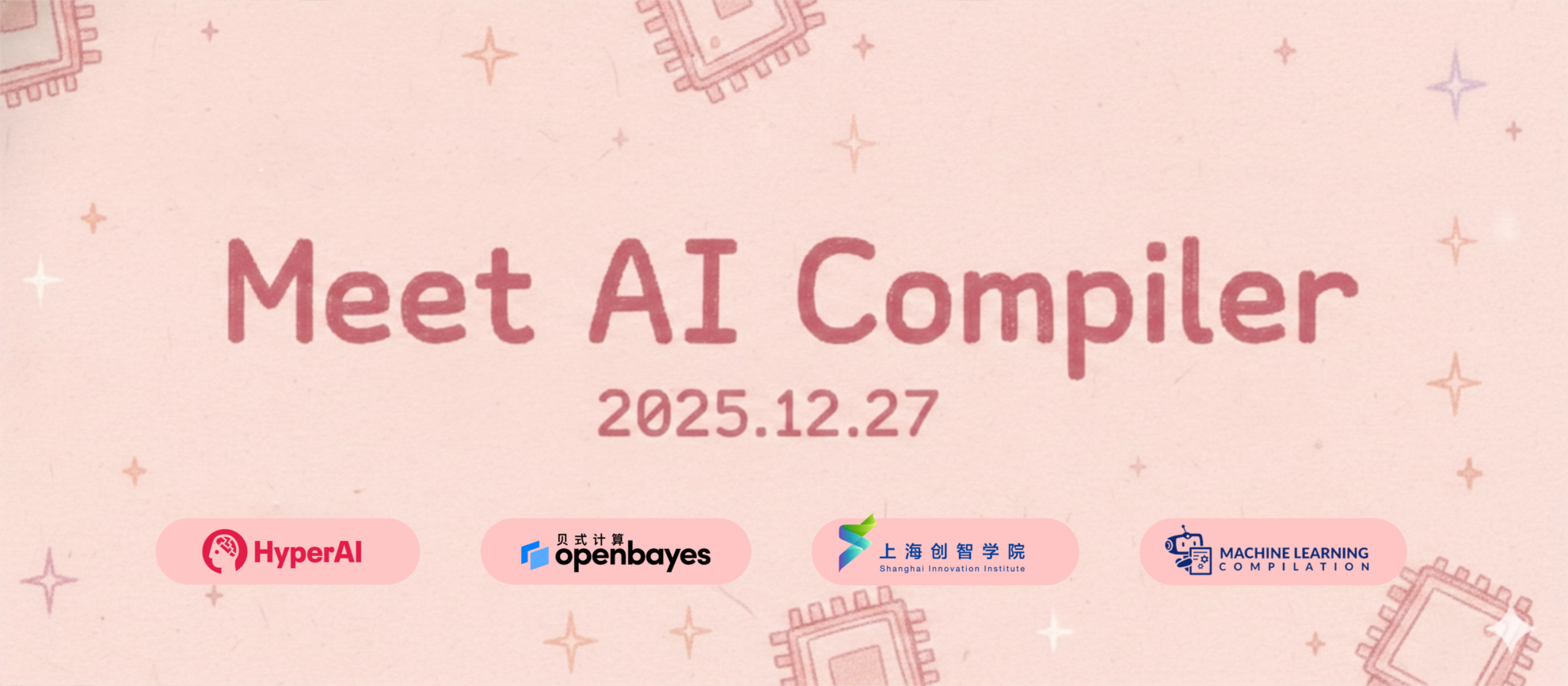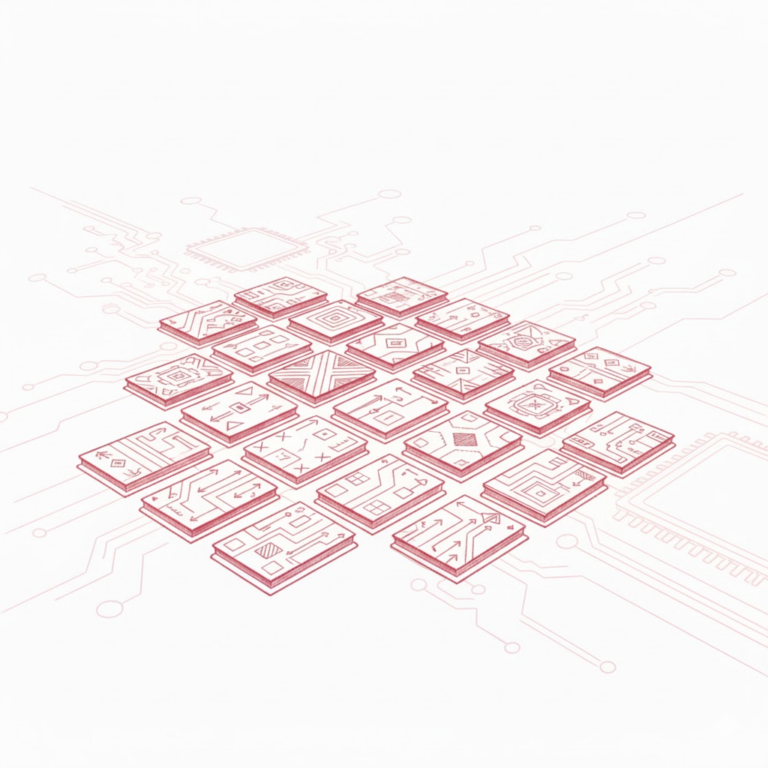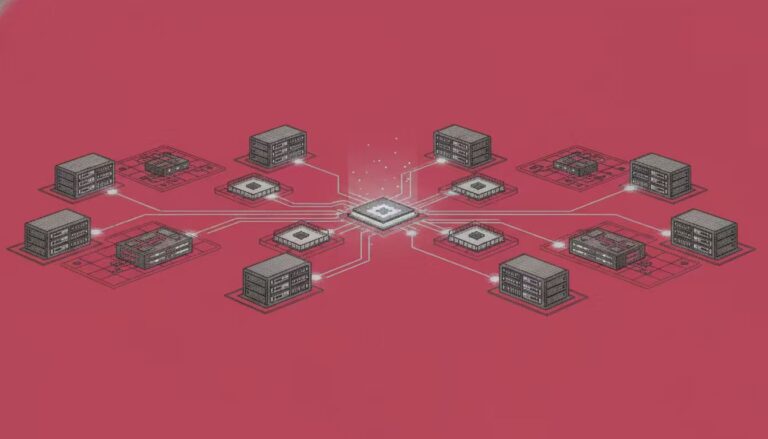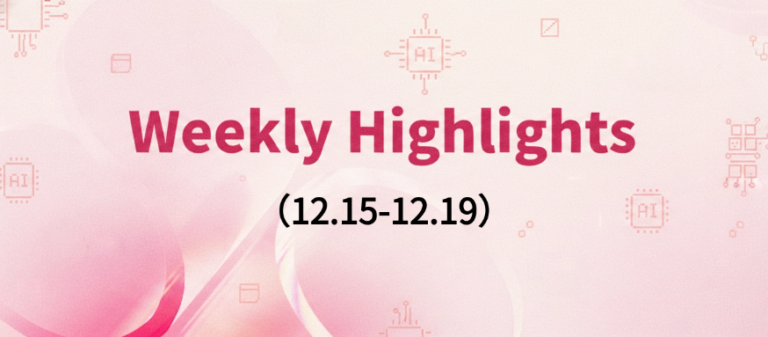Command Palette
Search for a command to run...
AI Compiler Technology Salon | AMD/Peking University/Muxi/Shanghai Chuangzhi Gathered in Beijing, TVM/Triton/TileLang Showed Their Strengths
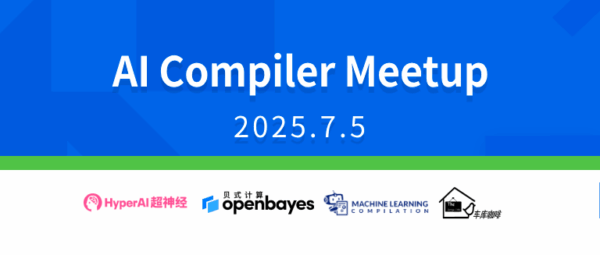
In an era when AI is transforming thousands of industries, a technological revolution in efficiency, deployability, and computing sustainability is quietly taking place. As a key middleware that connects the upper and lower levels, the AI compiler connects the underlying hardware and upper-level applications. Whether it is TVM, which has been widely used in the industry, or Triton, which has risen rapidly in recent years, or TileLang, an operator programming language that only emerged at the beginning of this year, compilation technology is not only a basic guarantee for the model to "run", but is also being upgraded to a key technology to support "efficient execution and resource utilization optimization."
Innovations and practices around AI compilers continue to emerge, and people's attention to this field is also increasing! In order to better connect cutting-edge research and application scenarios,On July 5, HyperAI will hold the 7th Meet AI Compiler Technology Salon in Beijing.We are honored to invite many senior experts from AMD, Peking University, and Muxi Integrated Circuit to share their best practices and trend analysis for AI compilers. In addition, Feng Siyuan, assistant professor at Shanghai Innovation Institute and Apache TVM PMC, will serve as the moderator of the roundtable session and have an in-depth discussion with many lecturers on the theme of "a unified compilation ecosystem across hardware."
Seats are limited, please register in advance. See you there!
Event Details
⏰ Time: July 5 (Saturday) 13:30-17:45
Location: Garage Cafe, 2F, Building 6, Zhongguancun Chuangye Street, Haidian District, Beijing
Number of people: 200 (Onsite seats are limited, please register as early as possible)
Registration: Click the link below to register, early bird tickets are limited, first come first served!
https://www.huodongxing.com/event/1810501012111
Guests and Agenda
Session 1: Technology Sharing
13:40-16:35
Zhang Ning AMD AI Architect
Share topic:Helping the open source community, analyzing AMD Triton compiler
Contents:Triton is a programming language proposed by OpenAI that is designed to simplify the development of high-performance GPU Kernel. It has been widely used in the mainstream LLM reasoning training framework. Users can implement GPU Kernel by developing Python Triton code without having to worry about the underlying GPU architecture details, which greatly reduces the difficulty of GPU code development.
AMD has implemented the Triton compiler on relevant GPU platforms and contributed it to the Triton open source community. In order to optimize GPU code performance, you need to understand the Triton compiler and its role in kernel performance optimization.This sharing will discuss the AMD Triton compiler in detail and introduce how the compiler improves the performance of Triton on AMD GPU platforms.
Watch this sharing session and you will learn:
1. Introduction to AMD GPU architecture.
2. The latest work of AMD GPU in the Triton open source community.
Yang Zhi Associate Researcher, School of Computer Science, Peking University
Share topic:TileLang: Operator development is no longer "brain-burning", and performance is still online
Content introduction: This time we bring a new operator programming language - TileLang.Through explicit tile-level primitives and automatic reasoning mechanisms, it enables developers to efficiently implement hardware-aware neural operators, balancing control and development efficiency. Compared with traditional compilers (such as Triton), TileLang can achieve up to 6 times performance improvement on mainstream GPUs, significantly simplifying the development process and making performance optimization no longer "exclusive to experts."
Watch this sharing session and you will learn:
1. Master a simpler and more efficient high-performance operator development language.
2. Understand the core design concept and technical advantages of TileLang.
Dong Zhaohua Senior Director of Muxi Integrated Circuit
Share topic:TVM application practice on Muxi GPU
Content introduction: This discussion mainly focuses on how to apply TVM on Muxi GPU.For Muxi GPU, high-performance operators are generated around TVM to enable mainstream AI frameworks based on TVM.
Watch this sharing session and you will learn:
1. Problems that may be encountered when adapting TVM to domestic GPGPU.
2. What are the benefits of TVM on domestic GPGPU and what aspects need further breakthroughs.
3. Regarding the support status of AI compilers such as TVM on domestic GPGPUs, and discuss how to expand the related ecosystem.
Stay tuned~
Please look forward to more guests~
Session 2 Roundtable Discussion
Roundtable theme: Unified compilation ecosystem across hardware
Organizers and partners
As a premier global community in artificial intelligence and high-performance computing, HyperAI (hyper.ai) is committed to supporting developers and enthusiasts across the global data science and AI industry by providing a comprehensive suite of services— including industry news reports, accelerated data set downloads, online tutorials, benchmarks of leading AI models, curated recommendations of cutting-edge research papers, in-depth interpretations of high-impact results and integration with top conference calendars. HyperAI empowers developers to explore, comprehend, and apply AI, driving innovation and shaping the future of artificial intelligence in collaboration with community.
Visit the official website:https://hyper.ai/
OpenBayes Bayesian Computing is a leading high-performance computing service provider in ChinaBy grafting classic software ecosystems and machine learning models onto new-generation heterogeneous chips, it provides industrial enterprises and university scientific research with faster and easier-to-use data science computing products. Its products have been adopted by dozens of large industrial scenarios or leading scientific research institutes.
Visit the official website:https://openbayes.com/
The MLC.AI community was established in June 2022. Chen Tianqi, the main inventor of Apache TVM and a well-known young scholar in the field of machine learning, led the team to launch the MLC online course, which systematically introduced the key elements and core concepts of machine learning compilation.
In November 2022, with the joint efforts of MLC.AI community volunteers, the first complete TVM Chinese documentation was launched and successfully hosted on the HyperAI official website, further providing domestic developers interested in machine learning compilation with the basic settings for accessing and learning a new technology - documentation.
MLC Online Courses:https://mlc.ai/
TVM Chinese Documentation:https://tvm.hyper.ai/
Founded in April 2011, Garage Coffee is one of the earliest companies in China to focus on early-stage Internet startups. It has built a low-cost, convenient, full-factor, open innovation and entrepreneurship service platform for early-stage entrepreneurs around the concept of "mass entrepreneurship."
As the first makerspace in Beijing's Zhongguancun Entrepreneurship Street, Garage Coffee uses coffee shops as interactive carriers to provide entrepreneurial teams with interactive office space and incubation services for sharing, co-promotion, integration and co-existence. Garage Coffee is the world's first entrepreneurial-themed coffee shop, and is China's most influential national makerspace and international innovation and entrepreneurship platform.
Event Support
Event Registration:Click on the link to register for the event
https://www.huodongxing.com/event/1810501012111
Taking into account the venue space conditions of this event, we have only opened 200 places for attendance. We recommend that you register as early as possible to secure a seat.
See you on July 5th from 13:30 to 17:45!
